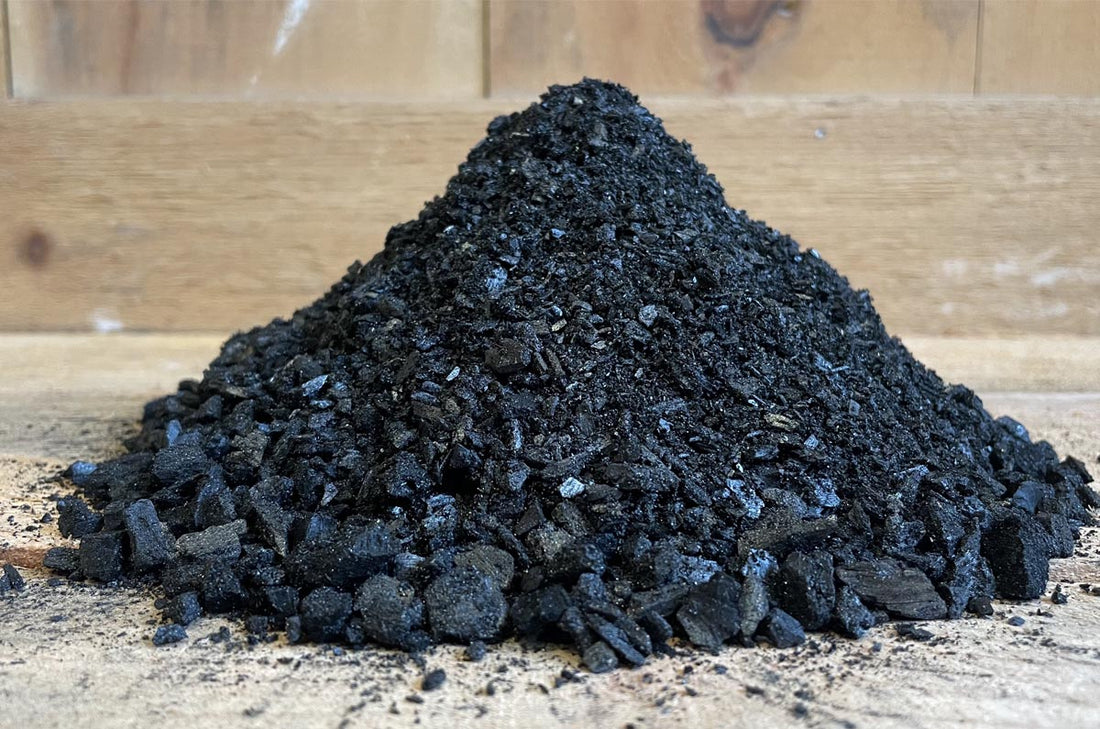WHAT IS BIOCHAR AND WHY IS IT A BIG DEAL?
Did you know that we consume 500 billion cups of coffee globally every year?
That’s a LOT of coffee.
All that coffee makes for tonnes of spent coffee grounds with no real use. You’ll usually find them tossed into the food waste, or perhaps the odd green thumbed person using them for their garden.
Resourceful as this may be, and much as I know our flower beds will never complain, what if I told you that used coffee grounds have the potential for a much higher purpose? On a worldwide scale?
Enter: Biochar
Biochar is a game-changing substance in the scientific and environmental scenes, which has the potential to hugely enhance soil and tree health, boost crop yields, and absorb a pretty impressive amount of global greenhouse gas emissions.
And by pretty impressive, I mean a whopping 3.4-6.3 billion metric tonnes of carbon dioxide equivalent (PgCO2e), if used to its true potential.
But what is Biochar, you ask?
(Here’s the science-y bit).
Biochar is a substance with a resemblance to charcoal, and it’s created by heating biomass such as wood chips, agricultural waste, or as in our example, spent coffee grounds.
The process is known as pyrolysis, which occurs at temperatures between 350-700 Celsius in low-oxygen environments. Pyrolysis removes any volatile compounds, resulting in a stable, high-carbon product.
Thanks to its stability, when Biochar is buried in the ground, it can securely withhold all its carbon for hundreds, or even thousands, of years without allowing it to emit into the earth’s atmosphere.
This means that this simple substance, created from what would otherwise be disposed of as waste, has the ability to tackle multiple environmental issues while providing numerous benefits at the same time.
Pretty cool, right?
The Benefits
Although much of the excitement surrounding Biochar is due to its carbon sequestration (carbon capture) potential, it also offers several benefits in other areas. Here are just a few:
- Reforestation: Biochar can contribute to ideal habitat conditions for essential microorganisms. When they thrive, soil quality improves, and trees and plant life flourish.
- Increased Crop Yields: by introducing Biochar into crop fertilisation methods, farmers can enjoy enhanced yields without needing to resort to pricey and environmentally harmful alternatives.
- Additional Revenue for Farmers: farmers could gain a new source of income by selling their waste materials and wood from forest cultivation, that they would usually discard or burn, for the creation of Biochar.
- Waste Management: global agricultural and organic waste has been a pressing issue for a long time. Biochar offers a sustainable and beneficial alternative to the usual incineration or landfilling, which release harmful gases into the atmosphere.
The Future…
Bottom line: Biochar is a pretty big deal and is causing a LOT of excitement for our future as a planet.
With proper research and tech advancements, it has the potential to enrich soils, sequester carbon, and create a more circular economy with organic waste. People ‘in the know’ are referring to it as ‘nature’s black gold’, a real superhero in disguise.
All from simple coffee grounds (among other things of course, but we are particularly excited about the coffee grounds!) that comes from your daily latte.
Coffee really is the gift that keeps on giving.
Written by Rose Williams
https://www.clippings.me/rosewilliams
Sources:
https://www.pyropowereurope.com/netherlands
https://www.biogreen-energy.com/biochar-production

